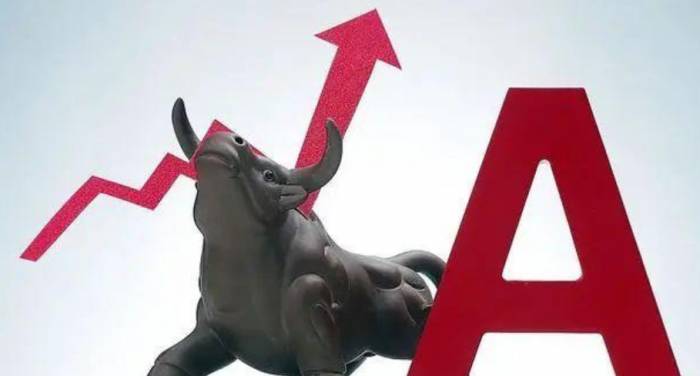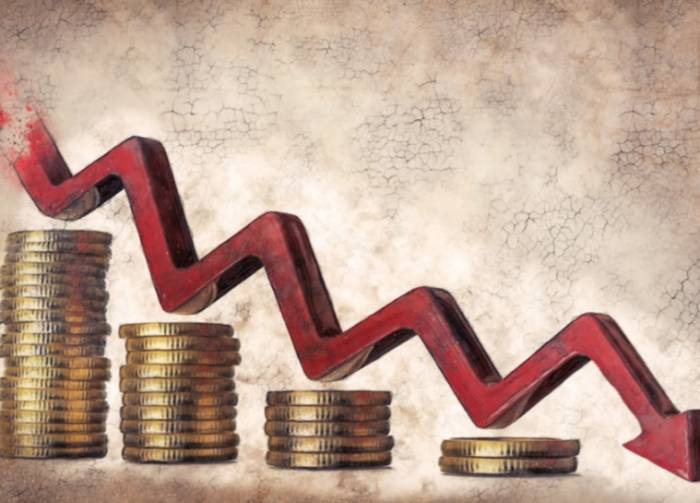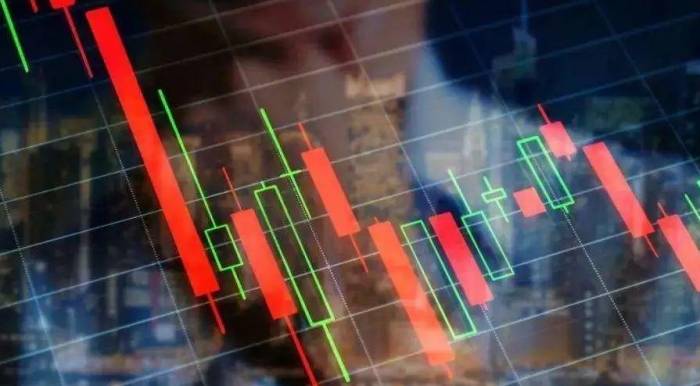In the view of industry insiders interviewed, salary adjustments are the chain reaction and inevitable cost following the contraction of the public fund industry after its abnormal prosperity. A more serious issue is that public trust has been severely damaged, and the industry's value urgently needs to be rebuilt.
The salary adjustment in the fund industry is coming.
Half of 2024 has already passed, and some fund companies still have not issued the year-end bonuses for 2023, "and may not issue them." Some small companies have even fallen into large-scale layoffs and wage arrears. The reform of reducing fees is continuously deepening, but the fund performance has not improved, and fund companies have to face the double blow of scale and management fee rates.
Public fund executives and fund managers with larger management scales may be the main groups affected by salary restrictions. It is understood that in the previous audit by the National Audit Office, the phenomenon of some executives receiving excessively high annual salaries has attracted attention.
Under the repeated warnings of the regulatory authorities, the era of astronomical salaries for star investment research has passed. After some public funds under state-owned enterprises returned salaries, some fund managers chose to resign. More and more fund managers, although they have no plans to resign, choose to step down from some products to "reduce their burden." At the same time, some grassroots employees find that their KPIs have become more difficult to complete, "with an expected decrease in income of more than 20%."
In the view of industry insiders interviewed, salary adjustments are the chain reaction and inevitable cost following the contraction of the public fund industry after its abnormal prosperity. A more serious issue is that public trust has been severely damaged, and the industry's value urgently needs to be rebuilt.
In the past three years, investors' dissatisfaction has been accumulating in the continuously expanding fund losses. The industry issues of the "Great Leap Forward" in scale driven by channels, the vague evaluation of the capabilities of public fund managers, and the short-sightedness of investment behavior have also led investors to question whether the management fees paid and the performance obtained are matched.
Data shows that the enthusiasm of fund managers for research has decreased. In the first half of the year, the entire industry researched listed companies 50,913 times, a decrease of 22% compared to the same period last year, and a decrease of 19% compared to the previous quarter. Some fund investors also began to worry whether fund managers would resign or lie down and slack off, "If that's the case, when can my fund break even?"
Faced with this salary adjustment in the fund industry, the mediocre have lost their fighting spirit due to environmental constraints, while the self-driven are reflecting and moving forward in adaptation. "Lying down in marketing, but not lying down in performance." A fund manager told Caijing.As Public Mutual Funds Begin Salary Reductions
Recently, news about "State Development & Investment Corporation's Ruiyin Fund salary adjustment and salary refunds being rejected by foreign shareholder UBS" has been circulating in the market. Although UBS has stated to the media that it "will not respond to rumors," it undoubtedly has once again touched the industry's sensitive nerves.
The news of salary reductions in public mutual funds has previously attracted widespread attention in the market. It has been learned from the industry that by the end of June, a public mutual fund under a state-owned enterprise had begun to implement a salary reduction plan. Even earlier, the related company was the first to circulate news of a salary cap of 2.99 million.
The news of salary reductions has caused quite a stir in the industry. When trying to understand the specific details from several public mutual fund professionals who might be involved in salary refunds, the interviewees were all very secretive about the matter, saying "unable to comment," "cannot say," "striving to do their job well."
Although the recovery and deduction of salaries have become a normalized policy in commercial banks, there is no precedent in the fund industry, and there are currently no clear rules in place.
Referring to the recovery and deduction mechanism in the banking industry, according to the "Guiding Opinions on Establishing and Improving the Performance Compensation Recovery and Deduction Mechanism of Banking and Insurance Institutions" issued by the former Banking and Insurance Regulatory Commission Office at the beginning of 2021, the focus of recovery and deduction is on violations and disciplinary actions, fraud and falsification, and regulatory indicators, risk management, etc.
In 2022, the China Securities Regulatory Commission (CSRC) and the Fund Industry Association successively issued documents such as "Regulations on Issues Related to the Implementation of the Supervision and Administration Measures for Publicly Raised Securities Investment Fund Managers" and "Guidelines for Performance Appraisal and Salary Management of Fund Management Companies." Among them, it is mentioned that public mutual fund managers should clearly state in labor contracts that if relevant personnel fail to perform their duties diligently and are responsible for illegal and regulatory violations or operational risks of the public mutual fund manager, according to the relevant provisions of the recovery and deduction system, the public mutual fund manager can stop paying the unpaid part of the salaries of the relevant responsible personnel and require them to return the relevant bonuses for the year when the relevant actions occurred, or stop implementing long-term incentives for them. The aforementioned recovery and deduction provisions also apply to离职 personnel.
Although as early as 2022, the regulatory authorities issued multiple documents urging fund managers to improve the salary system, it is understood that there are currently no clear and unified rules in the industry on how to define the standards for "diligent performance of duties" and "responsibility for violations." The related companies involved in the recovery this time also did not previously establish a clear recovery and deduction mechanism.
"It should have been confirmed recently, and the news is only known by a few leaders," a person close to the related company revealed, and it may finally adopt a "one-size-fits-all" approach.
Whether the salary reduction has a legal basis has become one of the focuses of concern for practitioners."Enterprises must comply with industry regulatory requirements and abide by labor laws to protect workers' rights to receive compensation for their labor. No employer may withhold or arbitrarily delay the wages of workers, nor may they infringe upon the rights of workers to obtain compensation for their labor," said Guo Zhenwei, a partner at the Beijing Guantao Zhongmao (Shanghai) Law Firm.
Guo Zhenwei believes that if an enterprise has not established specific salary recovery and clawback systems, or if the relevant systems have not gone through the legal process, they do not have legal binding force on workers. If the conditions for establishing recovery and clawback violate mandatory labor law provisions or are not triggered, they may cause harm to workers' rights.
Zeng Li (a pseudonym), who has served as a senior executive in several public mutual funds, believes that the parts that are improperly distributed and those that are excessively high should be returned and limited, but they should not become a common practice in the industry. "The current rumored cap of 3 million yuan is too low for market-oriented enterprises. Regulation can only set mandatory compensation standards or caps for state-owned or state-controlled enterprises, but it should not impose mandatory requirements on private enterprises, joint ventures, or foreign-funded enterprises, unless individual excessively high salaries cause adverse social impacts."
"Private, joint venture, or foreign-funded enterprises may take advantage of salary caps in state-owned enterprises to withhold employee compensation or reduce employee benefits, which would lead to another extreme," Zeng Li believes. The optimization of compensation incentive mechanisms should adopt a structured and differentiated approach, to level peaks and fill valleys, prevent improper distribution, limit excessively high salaries, and eliminate the demonization of the financial securities industry.
In fact, the pay variance in the fund industry is very large. There are significant differences between different cities, companies, professional years, and positions.
"The general situation in public mutual funds is that the front desk eats meat, and the back office drinks soup, while the year-end bonus, an important part of the income, depends on the year's performance," an industry insider said. Fund companies are mainly concentrated in Beijing, Shanghai, Guangzhou, and Shenzhen. The top companies in Guangzhou, Shenzhen, and Shanghai have relatively higher incomes, while Beijing has relatively lower incomes.
A senior industry insider who has worked in a small and medium-sized fund company for more than ten years said that his company had previously adopted a business department system, with the after-tax income of star managers reaching tens of millions of yuan.
"After the abolition of the business department system, there are very few people in the company who can exceed 2.9 million yuan. Apart from the general manager, it is probably the star fund managers," the aforementioned person said. The income of fund managers in his company is mainly affected by three factors: base salary, scale retention, and industry ranking, among which the highest level of base salary can reach 200,000 yuan per month.
"Generally speaking, the income of active equity fund managers with a scale of more than 10 billion yuan should be able to exceed 3 million yuan," a senior industry observer said.
Data shows that, roughly calculated by mixed fund managers as a category, among 1,676 fund managers, only 93 fund managers have a scale exceeding 10 billion yuan, accounting for about 5.55%."Compensation issues involve many departments and there is no unified standard. In fact, many things have already exceeded the regulatory scope of the Securities Regulatory Commission," a senior executive of a large public mutual fund told Caijing, indicating that the focus of this compensation adjustment is mainly on state-owned enterprises, with no consensus yet on private and foreign-funded enterprises.
"Industry rectification should not turn into a 'populism' of compensation, and it should not inadvertently harm grassroots employees," Zeng Li said, noting that the salaries of some small and medium-sized fund companies are not high. "Some grassroots employees with years of experience only receive a few thousand yuan in take-home pay; the pre-tax annual income of department heads and fund managers is mostly around 500,000 to 600,000 yuan; the pre-tax income of some general managers of state-owned public mutual funds is around 1 million yuan. These people are far from the high salaries everyone imagines."
"Individual cases cannot represent the overall level of the industry," a senior industry figure said, adding that the focus of compensation reform should be on reasonable incentives to better implement the concept of investor interests as the core.
The number of fund managers leaving their positions has reached a new high.
The adjustment of fund compensation is seen as "gratifying" by many onlookers, but for active fund investors, the compensation adjustment brings more concerns about fund managers lying flat or leaving at present. A set of data frequently cited by the media recently is that the number of fund managers leaving their positions has reached a new high.
Data statistics show that in the first half of 2024, a total of 165 public mutual fund managers left their positions, setting a new record in the past nine years.
Further data analysis reveals that corresponding to the number of departures is the record high number of public mutual fund managers. As of June 30, 2024, the number reached 3,796. If the total number of people is taken into account, the departure rate is 4.35%, which is not much different from the recent mobility.
Using statistical data to illustrate that talent departure has become a trend under compensation adjustment is not very convincing. However, the frequent departure of high-performing fund managers is also a scene not seen before.
On April 3 this year, Fan Yan, the deputy general manager of Yuanxin Yongfeng who supported the company with his own strength, officially announced his resignation. In early March, the market heard that Fan Yan had disagreements with the newly appointed general manager on expanding the management scale. In early May, the outside world learned that he had joined FuGuo Fund.
At the same time as Fan Yan joined FuGuo Fund, the news of Qiu Dongrong, the deputy general manager of ZhongGeng Fund, was about to leave spread quickly. But when he had revealed to some channels his intention to "return to the family," ZhongGeng Fund stated to the outside world, "Please do not believe or speculate arbitrarily on information obtained through other unofficial channels."Entering June, the adjustments by top-performing fund managers have become increasingly frequent.
On June 1st, Wang Yanfei, the manager of a 10 billion yuan fund at Dongfanghong, added a new fund manager to his product line. He oversees a regular open-ended fund with a five-year lock-up period, currently serving for four years and 60 days;
On June 4th, Jiang Feng, a 17-year veteran at CCB Fund, left abruptly, leaving behind the CCB Fengrui Selection Fund, which was named after him and has not yet been established for a year; on the same day, Dong Shanqing, a 12-year veteran at Tai Xin Fund, sold out all the funds under his management;
On June 15th, Jia Chengdong, the director of Investment Department IV at China Merchants Fund, resigned from all his products. Although the company announced externally that he had transferred to another position, according to Caijing, Jia Chengdong had previously communicated with several public funds in Shanghai and had submitted his resignation process within China Merchants Fund;
On June 18th, Gu Xiaowen, the former top fund manager at China Post Fund, officially announced his resignation for "personal reasons". This year, he has successively resigned from several products for "business development needs";
On June 29th, Yan Peixian, another pillar fund manager at China-Canada Fund, left. It is understood that Yan Peixian's next destination is a public equity fund company in Shanghai;
On June 29th, Tian Yulong, the fund manager at Bank of Communications Schroders Fund, resigned from all his products and left the company;
On July 8th and 10th, all products under Zhang Yufan, a top-performing fund manager cultivated by ICBC Credit Suisse Fund, added new managers.
Reviewing the changes in fund managers this year, it can be observed that there is a trend of accelerated personnel departure from small fund companies, an increase in bank-related funds, and a significant increase in the suction power of some large companies.
Some industry insiders believe that after the fund fee reduction reform, small fund companies, due to their single business type, face a more difficult survival situation, which has also led to more conflicts between companies and fund managers. The increase in resignations from bank-related fund companies is related to the salary cap trend of the shareholders. Previously, there was news that the salary cap for a public fund manager from a bank-related fund company was 1.2 million yuan.For fund managers, a chill has enveloped the entire asset management industry, and entering the private sector also requires immense courage. In comparison, top-tier public mutual funds with more diversified business structures, stronger anti-fragility capabilities, better investment research atmospheres, less impact from compensation adjustments, and more generous remuneration have become scarce ideal destinations.
Furthermore, after the compensation adjustments in public mutual funds, insurance asset management, with its high cost-performance ratio, has also become a new aspiration for some fund managers.
"Recently, more and more friends from public mutual funds have been asking me about our recruitment plans," said Xiaoyu (a pseudonym), who works at an insurance asset management company and has suddenly noticed that positions in insurance asset management have become "more attractive." "The income from insurance asset management is actually not as high as that from public mutual funds, but it wins in stability."
Xiaoyu analyzed that the liability side of insurance is relatively stable, and fund managers have expectations for the duration of investments, allowing them to think more calmly about long-term issues without worrying about scale pressure. "There is no need to get involved in many short-term things, and life and work can also be more balanced."
When it comes to the reasons for leaving, fund managers often cite external reasons such as "wanting to take a break, stop for a while" and "returning to family." The A-share market, which has been hovering around 3000 points for a long time, the increasing investment difficulty under strong regulation, and the physical problems caused by long-term high-intensity work have also made fund managers consider whether it is better to "go home and rest for a while."
Under the cloud of compensation adjustments, the reasons for passive departures have also increased, including poor performance, niche businesses not making money, changes in management, and so on. Some fund managers have also left their positions through passive job adjustments. Recently, two fund managers from Dongwu Fund have been transferred to the company's industry researchers. Relevant personnel from Dongwu Fund stated externally that this move is an adjustment made by the company from the perspective of assessment dimensions. The performance of the relevant products has been poor in the past, and based on a responsible attitude towards fund investors and products, the company needs to actively respond.
In addition to leaving, reducing burdens has also become a new choice for some fund managers in the current environment. A person from a large fund company in South China believes that in the future, the management scale and the number of products of fund managers will most likely decrease.
"On the one hand, it is out of regulatory requirements and considerations for optimizing performance. In the past few years, we can also see the inverse relationship between scale and performance. On the other hand, from the perspective of company management, it is difficult for active equity funds to have significant development again. With the number of fund managers remaining unchanged, it is necessary to make some reductions and share product actions, and the phenomenon of co-management will decrease in the future. In addition, considering the work cost-performance ratio of fund managers individually, under the restriction of compensation, there is no need to pursue a larger scale." The aforementioned person analyzed.
The Price of Abnormal Prosperity
In the view of the interviewed industry insiders, compensation adjustments are the inevitable chain reactions and necessary costs after public mutual funds have experienced abnormal prosperity.In April 2018, the new asset management regulations were issued, marking the beginning of the transformation and development of the asset management industry. With the logic of rigid payment guarantees broken, the regulatory framework of public mutual funds became the benchmark for the transformation of various asset management products, and it also reaped the benefits of the transfer of residents' funds.
Starting from 2019, public mutual funds entered a bull market characterized by a positive cycle of performance and scale. Data shows that the equity-oriented fund index reached a maximum increase of 142% during this bull market. Under the temptation of attractive returns, public mutual funds broke through the 20 trillion yuan mark in 2020, entering a period of scale explosion. It took public mutual funds 19 years to go from 0 to 10 trillion yuan, and only four years to go from 10 trillion yuan to 20 trillion yuan.
However, the fluctuating decline of the stock market since February 2021 led to a significant drawdown in fund performance. By the end of 2022, star public and private fund managers experienced "the most difficult time in their careers" and lined up to apologize to investors.
Investors' dissatisfaction continued to accumulate in the face of losses, while stories of extravagance in the financial circle overflowed on social networks. Also in 2022, on Xiaohongshu, known for its "average annual salary of one million yuan," an analyst posted an income of over 2 million yuan before tax, and a trader's family member posted a monthly salary slip of 80,000 yuan, claiming it "did not reach the company's average level."
The ostentatious behavior of some securities practitioners stimulated public sentiment, and regulation began to take action, initiating a rectification of industry compensation.
In May 2022, the Securities Association issued the "Guidelines for Securities Companies to Establish a Robust Compensation System," which clearly requires securities companies to develop a robust compensation plan when formulating a compensation system, taking into account the characteristics of the industry, fully considering the impact of market cycle fluctuations and the development trends of the industry and company business, moderately smoothing the compensation distribution arrangements, and at the same time, managing the extreme value control and rhythm control of compensation incentives.
In June of the same year, the Fund Industry Association issued the "Guidelines for Performance Appraisal and Compensation Management of Fund Management Companies," mentioning that the basic salary and performance salary should maintain an appropriate composition to avoid potential risks and adventurous behaviors that may arise from unreasonable compensation structures.
On March 15, 2024, the China Securities Regulatory Commission (CSRC) issued the "Opinions on Strengthening the Supervision of Securities Companies and Public Mutual Funds and Accelerating the Construction of First-Class Investment Banks and Investment Institutions (for Trial Implementation)" (hereinafter referred to as the "Opinions").
Shen Bing, Director of the Institutional Supervision Department of the CSRC, interpreted the "Opinions" at a press conference held by the State Council Information Office, stating that in recent years, some practitioners have exhibited extravagant and hedonistic lifestyles, eager for quick success, and "ostentatious wealth" and other undesirable practices, which have seriously damaged the industry's image. The "Opinions" require industry institutions to vigorously promote and practice the "five dos and five don'ts" of Chinese characteristic financial culture, strengthen review and management at important stages such as recruitment and appointment, and resolutely clear out practitioners who violate laws and regulations and whose behavior is seriously out of line. The regulatory authorities will cooperate with relevant departments to continuously improve the industry's compensation management system.
In March of this year, the CSRC issued the "Opinions on Strengthening the Supervision of Securities Companies and Public Mutual Funds and Accelerating the Construction of First-Class Investment Banks and Investment Institutions (for Trial Implementation)." It mentioned strengthening the supervision of integrity in practice, continuously strengthening the implementation, punishment, and deterrence of the "revolving door" system in the securities and fund fields, and establishing a long-term mechanism.In April of this year, the "Several Opinions on Strengthening Regulation, Guarding Against Risks, and Promoting High-Quality Development of the Capital Market" (hereinafter referred to as the new "Nine Articles") issued by the State Council also mentioned the need to improve the compensation management system of the securities and fund industry that is adapted to operational performance, business nature, contribution level, compliance and risk control, and social culture. Continuously carry out comprehensive governance of industry culture, establish and improve the classification list system for practitioners and the professional reputation management mechanism, and resolutely correct the bad tendencies of money worship, extravagance and hedonism, eagerness for quick success, and "showing off wealth".
How should trust be rebuilt?
The pain of compensation adjustment has led to reflections among all parties on whether the compensation in the asset management industry is reasonable.
"When making money, you take money, and when losing money, you still take money. This is actually very unreasonable," Li Lu, the founder of Himalaya Capital Management, mentioned in a speech at Peking University as early as 2015. The remuneration in the asset management industry is higher than almost all other industries and often deviates from the contribution to the growth of customers' wealth. In fact, the services provided to customers are very limited. In Li Lu's view, the challenges of knowledge and the temptation of high salaries in the asset management industry lead to uneven personnel, mixing of good and bad, and滥竽充数 in the industry. Industry standards are unclear, and everywhere is full of misleading fallacies that seem to be true but are misleading users.
Compared with the challenges brought by compensation adjustment, the more severe issue is the mess left after the industry's abnormal prosperity. Various signs show that the fund industry is fully falling into a trust crisis.
This year has been the third year of comprehensive decline in the performance of actively managed equity funds. As of July 12, 2024, the Wind equity fund index has fallen by 37% since December 10, 2021. Although the regulatory authorities strongly promote the development of equity funds, sales channels no longer trust actively managed equity funds.
There are also challenges within the industry in accurately evaluating fund managers. "Some companies don't know how to assess fund managers, and fund managers don't know how to evaluate themselves. They are increasingly unable to believe in their own investment actions," Jiao Jian, the founder of Owl Fund Research Institute, analyzed in an interview.
Jiao Jian further explained that in the past few years, many fund managers have changed jobs. Under the condition of insufficient portrayal of fund managers' abilities, many ineffective introductions have been made by fund companies. They have issued inappropriate products at inappropriate times and channels, especially the track funds sold to retail investors at high market levels, exposing huge beta risks.
Jiao Jian believes that at least half of the actively managed equity fund managers have not provided alpha that matches the management fees for investors. "At this time, the problem is revealed. Is the past ability of fund managers overestimated? If an active fund manager can only provide returns close to beta, then he should only receive the salary of an index fund manager. Those who truly have alpha should have higher returns, but it is also very difficult to identify."
The abnormal symbiotic relationship hidden behind the industry is the key driver of the trust crisis. From 2019 to 2021, the promotion of channels has led public funds through three years of "Great Leap Forward" in scale, also magnifying risks unprecedentedly. Since 2022, the entire industry has continued to pay for the previous behavior of mismatch between scale and ability."In the past, the industry ecosystem rewarded attackers, and few people praised good defense, which also led to distortions in public fundraising actions. No one cared whether fund companies helped investors make money, only cared about who made a large scale." A senior product manager from the banking industry said.
"From the perspective of every fund company and channel, it is the right choice to expand on a large scale in a bull market. Because when the bear market comes, even if you are very conscientious in the bull market, it is difficult to expand the scale in the bear market. On the contrary, the products issued in the bull market, because the fund people are trapped at high positions, the scale is relatively stable." The aforementioned product manager believes that industry inertia leads to the expulsion of bad money driving out good money.
Also contributing to the trust crisis is the shortsightedness of investment behavior.
"In terms of strategy selection, some fund managers rush to follow suit as soon as they find others starting to do something, which leads to a highly unstable investment framework." Jiao Jian said, "This phenomenon was not very obvious before the end of 2021, when most fund managers still had their own core. After two or three years, with the assessment system becoming ineffective and trust crisis, the investment behavior of fund managers has become more and more shortsighted."
Li Lu once advised college students that if they do not have the innate gene of trust responsibility, they must not enter the asset management industry. "You will become the destroyer and terminator of countless family fortunes. The economic crisis in 2008 and 2009 was largely due to the long-term so-called successful behavior of such people who do not have the responsibility of trustees, and such success is the destruction of the entire industry."
Looking back over the past three years, trust has been severely damaged, and the industry value is in urgent need of reconstruction. In this vigorous adjustment of the fund industry's compensation, the mediocre have lost their combat effectiveness due to environmental constraints, while the self-driven have reflected and moved forward in adaptation.
"I lie down in marketing, but not in performance." A fund manager said that he will not change jobs or leave public fundraising, because "if the performance is broken, I am sorry for the investors who believe in me."
"I don't know what the Pandora's box will eventually evolve into, but I am optimistic in the long term. A fund manager who has been working hard on performance for 10 or 20 years will always be rewarded." He added, "But I don't plan to have a second child."






























Comments
Join the discussion